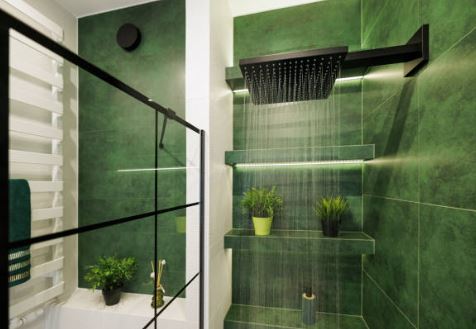Leaking Shower Taps: Causes, Solutions, and Preventive Measures
Introduction
Leaking shower taps can be an annoying and costly problem that many homeowners encounter. Not only does it waste water and increase your utility bills, but it can also lead to potential water damage and mold growth if not addressed promptly. In this article, we will explore the various causes of leaking shower taps, provide practical solutions to fix the issue, and offer preventive measures to ensure your taps remain in good working condition.
Understanding the Causes
1. Worn-out Seals
The seals within the shower tap handles can wear out over time due to constant use and exposure to water. This can lead to water leakage when the taps are turned off.
2. Loose or Damaged Parts
Shower taps consist of several components, and if any of them become loose or damaged, it can result in leaks. Loose handles, damaged cartridges, or worn-out washers are common culprits.
3. High Water Pressure
Excessively high water pressure can cause stress on the tap’s internal mechanisms, leading to leaks. The pressure can create cracks or gaps in the seals, allowing water to escape.
4. Corrosion
Corrosion can affect the metal parts of the shower tap, causing deterioration and weakening of the structure. This can result in leaks as water finds its way through the corroded areas.
Solutions to Fix Leaking Shower Taps
1. Replace Seals and Washers
By replacing worn-out seals and washers, you can restore the watertight seal within the tap handles and prevent leaks.
2. Tighten Loose Parts
Check for loose handles, cartridges, or other components and tighten them appropriately. This can eliminate gaps that allow water to leak.
3. Adjust the Water Pressure
Installing a pressure regulator can help control water pressure and prevent excessive stress on the tap’s internal parts.
4. Address Corrosion
If corrosion is the issue, carefully clean the affected areas and consider replacing the corroded parts to ensure a secure seal.
Preventive Measures to Avoid Future Leaks
1. Regular Maintenance
Perform routine checks on your shower taps to identify any potential issues early on. Tighten loose parts and address minor leaks promptly.
2. Avoid Excessive Force
Turn off the taps gently to avoid putting unnecessary pressure on the components. This can extend the lifespan of the tap and reduce the likelihood of leaks.
3. Use Water Softeners
Installing a water softener can reduce mineral buildup in the tap, which can contribute to leaks over time.
4. Professional Installation
Ensure your shower taps are installed correctly by professionals. Improper installation can lead to leaks and other plumbing problems.
Conclusion
Dealing with leaking shower taps doesn’t have to be a hassle. By understanding the causes, implementing the appropriate solutions, and following preventive measures, you can maintain functional and leak-free shower taps. Regular maintenance and timely repairs are key to preventing water wastage, saving money, and avoiding potential water damage in your home.
FAQs About Leaking Shower Taps
- How can I tell if my shower tap is leaking? Look for water dripping from the tap even when it’s turned off or damp areas around the tap handles.
- Can I fix a leaking shower tap on my own? Yes, simple issues like worn-out washers can often be fixed by homeowners. However, complex problems might require professional help.
- Why is water pressure relevant to tap leaks? High water pressure can stress tap components, leading to cracks and leaks. Regulating water pressure can prevent this.
- Is corrosion repairable in shower taps? Mild corrosion can be cleaned, but severe corrosion might require replacing affected parts for a lasting solution.
- How often should I perform maintenance on my shower taps? It’s recommended to conduct a visual check every few months and address any issues immediately to prevent leaks and other problems.
Need to contact a plumber then call us in Wellington Point Area at 0409 364 858 or contact us here
Here are some great posts about plumbing right here.
Tradelink And or Reece’s are a good place to start for fine tapware.


